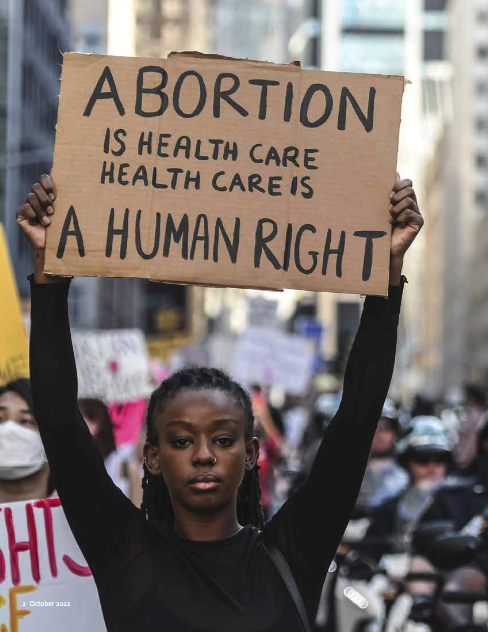
On June 24, 2022, in a historic and far-reaching decision, the US Supreme Court officially reversed Roe v. Wade, declaring that the constitutional right to abortion— upheld for nearly a half-century—no longer exists. The majority opinion in Dobbs v. Jackson Women’s Health Organization proposes that the various provisions of the Constitution contain no inherent right to privacy or personal autonomy. Writing for the majority, Justice Samuel Alito stated unequivocally that abortion is a matter to be decided by the states. The Court’s decision triggered an immediate rollback of reproductive health access in nearly half of the United States, with more restrictions and lawsuits likely to follow. Below, UO faculty members and students consider the many implications of the Dobbs decision:
Charise Cheney: The Supreme Court’s decision to overturn Roe v. Wade is a legal marker of an ongoing war over our right to bodily autonomy and sovereignty. But let’s be clear: Women of color, especially Black and Indigenous women, have never had reproductive freedom. We must remain vigilant because the Supreme Court case is a signal: We are all vulnerable to state encroachment upon our civil rights, not just minoritized communities. No one is safe. —Charise Cheney, Associate Professor, Department of Indigenous, Race, and Ethnic Studies; Director, Black Studies Program
Garrett Epps: As a human being, I find the majority opinion in Dobbs most appalling because of the human cost it will inflict on American women and families—additional maternal deaths and morbidity, eco- nomic deprivation, and negation of autonomy for women whose basic reproductive choice has been snatched away. As a constitutional scholar, I am most appalled at the contemptuously poor craft Justice Alito dis-lays responsibility in his discussion of history, legal precedent, and the Court’s respon- sibility to the American people and what is their Constitution—not the Court’s. Indeed, Alito’s opinion is so poorly crafted that its criticism of the Blackcomparedmun opinion in Roe seems almost parodic. Though the Roe Charise Cheney On the Implications of Overturning Roe opinion is open to critique, it is, com- pared to Dobbs, a masterpiece. In one passage, Alito lays out exactly how anti-choice legislators can craft sweeping bans that make no exceptions for medical or other emergencies—and makes explicit that risks to maternal health need not be weighed by courts reviewing such laws. The Court, he writes, need not concern itself with any adverse consequences of its decision for American women’s health, equality, or quality of life. (Indeed, the words “rape” and “incest” appear nowhere in the opinion.) To be blunt, the opinion drips with raw misogyny. It is an ill omen for those who depend on an independent judiciary to protect their rights from the emboldened overreach of legal and religious extremism. —Garett Epps, Professor of Practice, School of Law

